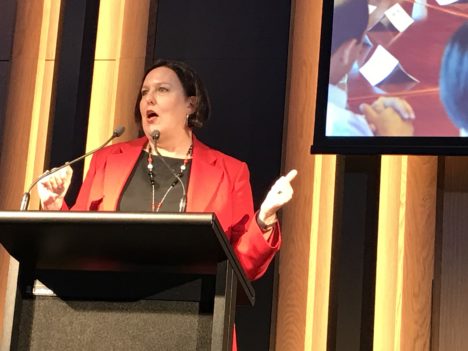Collaboration is the key to campaigning for change, says public affairs expert
For communication professionals advocating for change or lobbying the government for reform, the value of collaborating with stakeholders shouldn’t be overlooked, the national public affairs manager of the Australian Veterinary Association has told an audience.

Marcia Balzer: Advocacy campaigns need to bring stakeholders, voters and the media together on an issue
Speaking at today’s PRIA conference in Sydney, Marcia Balzer said reform campaigns that have fallen over failed to bring stakeholders, voters and media to the table as well as effective consultation with the wider industry.
“As I think about this political climate, I’m increasingly realising an awful lot of what I do is exactly this type of work: bringing people and organisations together to achieve change,” Balzer said.

